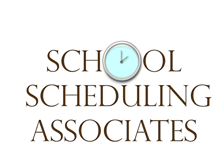 Robert Lynn Canady’s Grading and Scheduling Workshops:
Robert Lynn Canady’s Grading and Scheduling Workshops:
Click on one of the below links to see the document in .pdf form. Hit the back button on your browser to return to this page.
Professor Canady’s Bio
Workshop 1: School Policies and Grading Practices that Increase the Odds for Student Success and/or Failure
The implementation of certain school policies and grading practices can either encourage or discourage student motivation. Historically many grading practices were focused on sorting and selecting students. With the accountability factors operating in schools today, we need to focus on what we have learned during the past two decades relative to teaching, assessing and reporting learning and the relationship of those factors to student motivation. Grading issues and policies related to student motivation and valid assessments, along with suggestions for improvement, will be offered.
Materials for Workshop 1:
Grading Packet
Averaging to Determine Grades
Comparing Systems
Revisiting Selected Grading Policies and Practices
School Practices & Policies That May Contibute to School Failure
School Scheduling and Teaching Practices for Improving Student Achievement
Too Early to Tell if Dallas ISD’s New Standards are Curbing Dropouts by Kent Fischer
Leading to Change–Preventing 1000 Failures by Douglas Reeves
Montogomery Grading System Gets Mixed Marks by Lori Aratani
Sucess For All: The Median is the Key by Russell G. Wright
Standards Based Grading: Concept Mastery vs. Effort, Behavior and Cuteness by Forrest Clark and Susan Follmer
Zero Alternatives by Thomas R. Guskey
Grading Exceptional Learners by Lee Ann Jung and Thomas R. Guskey
Influence of One Zero on Final Grade
Workshop 2: Building Middle School Schedules that Provide Extended Learning Time (ELT) for Reading/ Language Arts, Mathematics, Advising and Tutorials (EEE* Period)
With increased accountability and student needs identified in Grade 9, middle grade programs and schedules are receiving greater scrutiny. Workshop participants will explore various middle school schedules that include additional time in reading/language arts and mathematics, along with suggestions for providing tutorials and interventions during the school day. If time permits, at least five scheduling models will be explored, along with two schedules that allow for recovery credits to be earned during and after Grade 8 for students who have failed up to three courses.
E = Extended time for some students, such as (1) completing homework, (2) working in computer lab, (3) re-taking tests, advising, counseling, receiving tutoring on specific skills identified from formative assessments, etc.
E = Elective class for students experiencing few academic difficulties.
E = Enrichment and additional Exploratory opportunities for those temporarily not
needing assistance provided during Extended time.
Materials for Workshop 2:
Middle School Workshop Packet
Characteristics of Grade 6 Potential Dropouts
<Four Block Schedule
Four Block Schedule with 40 Minute Lunch
Four Block Schedule with Single Period for EEE
Four Block Schedule with EEE Period First for all Grades
Four Block Schedule with EEE Period Last for all Grades
Four Block Schedule with EEE Period Third for all Grades
Algebra-Math Team Schedule
Five Block Middle School Schedule: Variation A
Five Block Middle School Schedule: Variation B
Five Block Middle School Schedule: Variation C
Five Block Middle School Schedule: 3 Lunch Periods
Eight Period Middle School Schedule with R/LA and Math
Alternative Math Team Schedule
Algebra-Math Team Variable Learning Time Schedule: 4 Teachers
Extended Teacher Planning Blocks for 4/4 and 7 Course Alternating Day
Scheduling Adaptations
Plan A–Middle & High School Students Failing in 1st Semester
Plan B–Middle School Students Failing Two Courses in 1st Semester
Plan C–Full-Year Retained Middle School Students
30-60 Minute Block, Concept-Progress 6-Day
30-60 Minute Block, Concept-Progress 8-Day
Extended Class Time and Teacher Planning
Scheduling Alternatives that Provide Recovery Options for Failing Students
>
Additional Resources for Workshop 2:
Scheduling Strategies for Middle Schools by Michael D. Rettig and Robert Lynn Canady
High Failure Rates in Required Mathmatics Courses: Can a Modified Block Schedule Be Part of the Cure? by Michael D. Rettig and Robert Lynn Canady
Workshop 3: Designing High School Schedules for Under-Credited and/or Over-Age Students at the end of Grades 8, 9 and 10 Who Need Support and Acceleration to Increase Graduation Odds
For at least 40 percent of the school population, Grades 8, 9 and 10 have become the “Make It or Break It” years. By the end of Grade 10, nationally we have lost over one-third of our students, and in some urban areas the loss is over 60 percent. This tragic loss of human potential is now being called “The Silent Epidemic.” To increase the odds for graduation for these students, we must provide both support and acceleration for them, which means providing schedules other than the traditional high school schedules with core classes running a full school calendar year.
Scheduling factors which increase graduation odds for under-credited students include:
- Balancing their work load in core classes that have a large amount of homework.
- Balancing the workload for teachers who teach these students so these teachers can perform the most productive teaching functions.
- Reducing the amount of failing time for these students.
- Providing support/tutorials during school hours.
- Varying school hours for core classes; for example, beginning some primary core classes after 10:00 a.m. or even noon.
Workshop participants will review at least four schedules that incorporate the above five factors and study pros and cons of each.
Materials for Workshop 3:
High School Workshop Packet
Dropout Workshop Packet
Cohort Definitions
Data Needed to Build Schedules For Students in Grades 9 and 10
From Tuning Out to Dropping Out
Why Have Schools Moved to Block Schedules?
Time Comparison Chart
Crime Doesn’t Pay, but Diplomas Do
School Scheduling and Teaching Practices for Improving Student Achievement
School Factors Related to Increasing the Odds for Student Success
Scheduling Alternatives that Provide Recovery Options for Failing Students
Planning Sheet for Basic 4 x 4 Semester Schedule
Cohort I 30-Day
Cohort I 30 Day Blank
Cohort IA
Cohort IB
Cohort I Grade 10
Cohort I Block 3
Cohort II
Cohort III
Alegbra-Math Team Schedule
Algebra-Math Team Variable Learning Time Schedule: 4 Teachers
30-Day Intensive Support and Acceleration Schedule
45-Day Intensive Schedule Worksheet–Versions I, II & III
45-Day Intensive Schedule Worksheet–Versions IV, V & VI
45-Day Intensive Schedule Worksheet–Completed Example of Version I
Examples of 45-day Intensive Schedules
High School Schedule with IE Period
Scheduling Adaptations
Various Ways to Schedule AP Classes in Schools with the 4/4 Schedule (article by Robert Lynn Canady)
East Union School District Bell Schedule
Eastside High School School
Additional Resources for Workshop 3:
Teaching in the block: Strategies for engaging active learners by Robert Lynn Canady and Michael D. Rettig
Block Scheduling: A Catalyst for Change in High School by Robert Lynn Canady and Michael D. Rettig
Predicting Success, Preventing Failure: An Investigation of the California High School Exit Exam by Andrew C. Zau and Julian R. Betts
Career Academies: Long-Term Impacts on Labor Market Outcomes, Educational Attainment, and Transitions to Adulthood by
James J. Kemple with Cynthia J. Willner
Summer School Puts Strain On Ga. Schools’ Money by The Associated Press
Online Options for ‘Credit Recovery’ Widen by Andrew Trotter
Cyber high school program reaches at-risk Wayne County teens by Lori Higgins
Practical Findings from the VA High School Safety Study: Can a Supportive School Climate Reduce Suspension Rates for Black & White Students?
Practical Findings from the VA High School Safety Study: How are suspension rates related to dropout rates?
Workshop 4: Building the Elementary School Master Schedule
Major goals of this workshop are to assist participants in designing master elementary schedules that:
- Provide teachers at each grade level or Professional Learning Communities (PLC’s) common planning periods at a regular time each day
- Provide a daily intervention/enrichment (I/E) period for students (see Chapter 4 in Elementary School Scheduling: Enhancing Instruction for Student Achievement by Robert L. Canady and Michael D. Rettig, referenced below);
- Reduce fragmentation of the school day and school programs;
- Blend support programs and reduce stigmatization of students;
- Where school resources will permit, provide reduced instructional groups in reading and mathematics as described in Chapters 6 and 7 of Elementary School Scheduling: Enhancing Instruction for Student Achievement by Robert L. Canady and Michael D. Rettig, under the topic of Parallel Block Scheduling (PBS); if this objective can be met, the design of the master schedule will eliminate the need for traditional seatwork activities and/or center activities.
With the above structures in place, in most elementary schools we observe a reduction in discipline problems and improved student test scores.
Materials for Workshop 4:
Elementary School Packet
Elementary School Master Block Planning Schedule for Grades K to 6
Elementary School Master Block Planning Schedule for Pre-K to Grade 8
Elementary School Master Schedule Planning Worksheet (9 Periods)
Elementary School Master Schedule Planning Worksheet (10 Periods)
Elementary School Master Schedule for ELGs in Grades K-2
Elementary School Master Schedule for ELGs in Grades K-2 (1 page)
Sample 1: Elementary School Master Schedule
Sample 2: Elementary School Master Schedule
Sample 3: Elementary School Master Schedule
Sample Master Planning Schedule Worksheet: Version 1
Sample Master Planning Schedule Worksheet: Version 2
400 Minute Elementary School Master Schedule Planning Worksheet
400 Minute Elementary School Master Schedule Planning Worksheet Pre K-8
400 Minute Sample Master Planning Schedule Worksheet
A Sample Structure of I/E Period for One Grade Level
Sample 3-Period Parallel-Block Worksheet
Sample 4-Period Parallel-Block Worksheet
30-60 Minute Block, Concept-Progress 6-Day
30-60 Minute Block, Concept-Progress 8-Day
3 Versions of Departmentalization with 2-Teacher Teams
A Sample Schedule of 2 Variations of 2-Teacher Teams
2 Versions of Departmentalization with 3-Teacher Teams
3 Versions of Departmentalization with 4-Teacher Teams
A Sample Departmentalization Schedule Using a 6-Teacher Teams
Encore Schedule Worksheet 1
Encore Schedule Worksheet 2
Paycan 420-Minute Elementary School Schedule w/ Multiple I/E Periods
Fentenn Elementary School Master Schedule: Grades Pre-K – 8
Elementary School Master Planning Schedule Sheet: Grades Pre-K – 8
Townside Elementary Schedule (.pdf Document)
Townside Elementary Schedule (Word Document)
Early Literacy Groups (ELGs) with 3 Kindergarten and 3 Grade 1 Teachers
Early Literacy Groups (ELGS) with 2 Kindergarten and 2 Grade 1 Teachers
Emergent Reader Lesson Plan for Grades K-1 by Carol Canady Payne
Beginning Reader Lession Plan for Grades K-1 by Carol Canady Payne
Intermediate Reader Lession Plan for Grades K-1 by Carol Canady Payne
Early Literacy Groups (ELGs) with 3 Kindergarten and 3 Grade 1 Teachers
Early Literacy Groups (ELGs) Meeting in Reduced Groups for Grades K-2
Elementary School Planning Worksheet for ELGs in Grades K-2 (9 Periods)
ELGs Meeting in Reduced Groups Twice Daily- 3 Kindergarten and 3 Grade 1
Elementary School Master Schedule Planning Worksheet (8 50-Minute Periods)
Blank Schedulng Worksheet–Period V Split for 3 Lunch Periods
Scheduling Worksheet K-2 with 2 Lunch/Recess Periods
Scheduling Worksheet K-6 with 2 Lunch/Recess Periods
Middleburg Elementary Master Schedule
Middleburg Elementary 4 Day Rotation
Brown 4 Day Rotation
Elementary School Schedule Planning Worksheet
Additional Resources for Workshop 4:
Elementary School Scheduling: Enhancing Instruction for Student Achievement by Robert Lynn Canady and Michael D. Rettig
Teacher-Pupil Link Crucial to Pre-K Success, Study Says by Linda Jacobson
Responding to RTI an interview with Richard Allington by Antonio Rebora
Catching Readers Up Before They Fail by R.L. Canady and C.E. Canady
Literacy for All: Making It a Reality by C.E. Canady and R.L. Canady
What At-Risk Readers Need by Richard L. Allington

